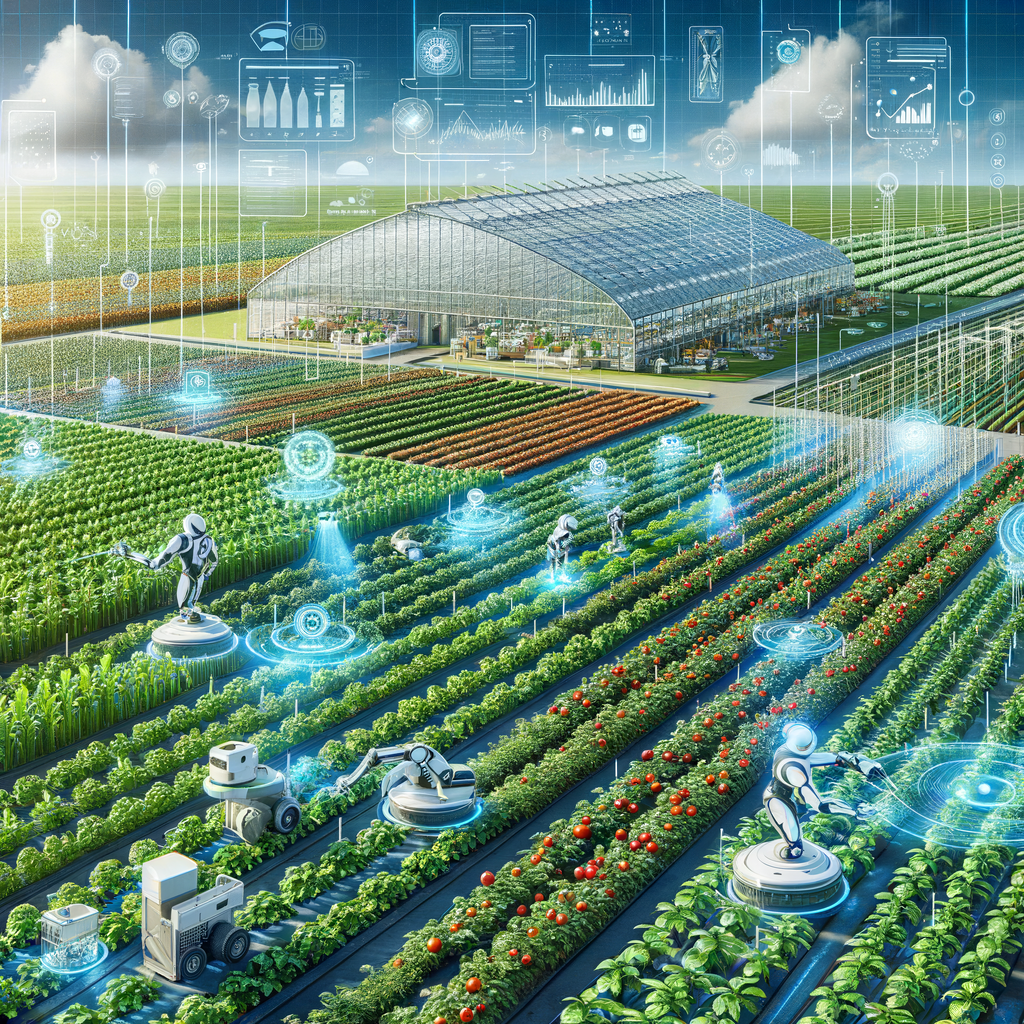
Feeding the Future: How AI is Revolutionizing Agriculture
Discover how artificial intelligence is transforming the agriculture industry by optimizing crop yields, improving sustainability, and revolutionizing farm management. From precision farming to AI-driven pest control, learn about the latest advancements and how they are shaping the future of food production.
Feeding the Future: How AI is Revolutionizing Agriculture
The integration of artificial intelligence (AI) into agriculture represents a pivotal moment in the history of farming, where age-old practices meet modern technology. This blend is not just a trend, but a necessity to meet the demands of a growing global population. In this blog post, we will delve extensively into how AI is revolutionizing agriculture, ensuring higher efficiencies, sustainability, and better yields.
The Need for AI in Agriculture
1. Increasing Food Demands
As the world population continues to grow, the demand for food production is reaching unprecedented levels. Traditional farming techniques alone are insufficient to meet these demands sustainably.
2. Climate Change Challenges
Farmers are facing growing concerns due to unpredictable weather patterns, which directly affect crop yields. AI technology can help in predicting weather changes, allowing farmers to make informed decisions.
Key Applications of AI in Agriculture
1. Precision Farming
AI enables precision farming, a method of managing farms by observing, measuring, and responding to inter and intra-field variability in crops. For instance, AI-powered drones and sensors collect vast amounts of data from fields which can be analyzed to optimize planting schedules, irrigation, and crop treatment.
2. AI-Driven Pest Control
Using machine learning models, AI systems can identify pest infestations early and recommend pest control measures, thereby minimizing crop damage.
3. Predictive Analytics
Predictive analytics, powered by AI, helps forecast crop yields, identify crop diseases, and manage supply chains efficiently. This leads to better resource allocation and reduced waste.
AI in Livestock Farming
1. Animal Health Monitoring
AI tools can monitor animal health by analyzing various parameters to detect sickness early and suggest interventions.
2. Feeding Systems
Automated AI systems ensure that livestock is fed optimally, improving meat and milk production.
Impact on Sustainability
AI facilitates sustainable agriculture through:
- Water Management: AI aids in optimizing water usage through smart irrigation systems.
- Minimizing Chemical Usage: Precision farming reduces excessive use of fertilizers and pesticides.
- Fuel Efficiency: AI optimizes machinery operations, minimizing fuel consumption.
Challenges and Future Prospects
1. Data Privacy and Security
With extensive data generation, issues surrounding data privacy and protection emerge as prime concerns.
2. Cost of Technology
The cost of implementing AI solutions can be prohibitive for small-scale farmers.
Looking Forward
Despite these challenges, the track record shows that AI holds immense potential to further improve efficiencies and sustainability in agriculture. Technological advancements and cost reductions are expected to make AI technologies more accessible, paving the way for a new era of farming.
Conclusion
AI is transforming agriculture by introducing innovative ways to increase productivity and profitability while maintaining sustainability. As technology progresses, AI promises more groundbreaking advancements, ultimately feeding the future.